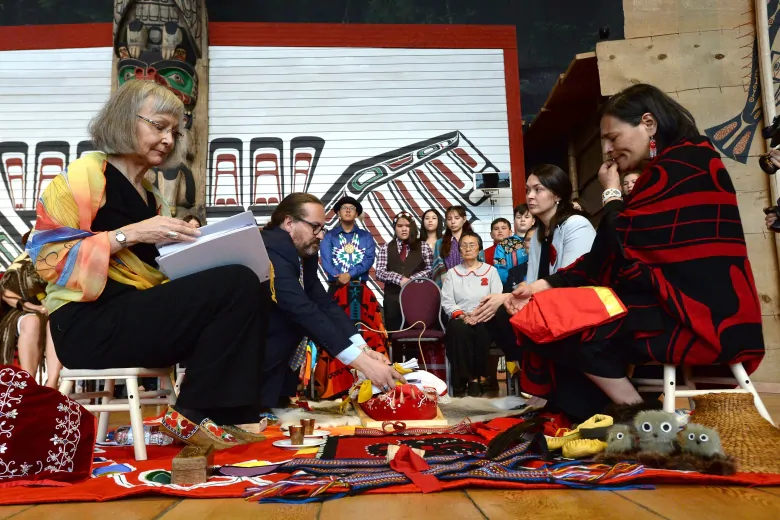The police response across Canada to the National Inquiry into Missing and Murdered Indigenous Women and Girls has been uneven and work to create national standards remains aspirational, according to a CBC News survey of law enforcement agencies.

The police response across Canada to the National Inquiry into Missing and Murdered Indigenous Women and Girls has been uneven, and work to create national policing standards remains aspirational, according to a CBC News survey of law enforcement agencies.
CBC News contacted police services from Victoria to Halifax and found there is still no uniform or coordinated approach to handling cases of missing or murdered Indigenous women one year after the release of the inquiry’s report and recommendations.
The Canadian Association of Chiefs of Police, the national policing organization asked by the inquiry to develop a national strategy by developing unified terminology and coding of cases, said improving the consistency of reporting by police agencies across the country and addressing gaps in data collection remains a goal.
“We must find a solution that is flexible enough to achieve our reporting goals without creating a labour-intensive process for our police teams,” said a spokesperson for the Canadian Association of Chiefs of Police (CACP).
“The consultation process and analysis has begun and progress is being made.”
The $92 million federally funded inquiry issued several recommendations aimed specifically at police, including a call to develop a national reporting strategy and to create a specialized team of investigators to take over unsolved murders and missing persons cases involving Indigenous women.
While all police forces contacted by CBC News have done some work to improve their relationships with local Indigenous communities and their handling of missing and murdered cases involving Indigenous women and girls, approaches vary from service to service — and some cover more ground than others.

Marion Buller, the former chair of the inquiry, said it’s hard to accurately gauge the progress of police services since an annual progress report on the inquiry’s recommendations hasn’t been drafted.
“It’s difficult to comment when there isn’t that transparency and if there isn’t that availability of information in a centralized location,” Buller said.
“The Canadian chiefs of police might be doing extraordinarily progressive work and it’s hard to know. Or maybe they’re not, and it’s still hard to know.”
CACP is working with Statistics Canada — which publishes annual Homicide Survey reports data on homicides of Indigenous women and girls — to improve data collection. The organization said case information is being compiled by the Canadian Police Information Centre and the RCMP’s National Centre for Missing Persons and Unified Remains database.
“Police services in Canada did not wait for the June 3, 2019 release of the National Inquiry report to undertake initiatives to achieve improvements in policies and procedures, including in the area of data collection, analysis and reporting,” said a CACP spokesperson in an email to CBC News.
“To achieve timely progress, we are looking to build and expand on existing processes that have proven to be successful.”
RCMP updates missing persons policies
The RCMP is consulting with the federal government to develop a national action plan to respond to the inquiry’s recommendations and is working with various federal departments, Indigenous groups and advisory councils on next steps.
The RCMP said it has done work over the last several years that aligns with the inquiry’s recommendations — establishing a National Office of Investigative Standards and Practices for major investigations, for example — and is consulting with Indigenous academics and advocates over how it handles cases and the cultural awareness training that is mandatory for all cadets.
In response to testimony from families during the inquiry, the RCMP said it now directs officers to only use mug shots

